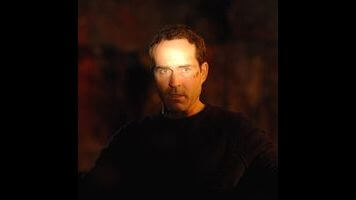Establishing an elaborate sci-fi premise is easier than sustaining one. In Wayward Pines’ finale last season, when Matt Dillon’s stalwart federal agent Ethan Burke blew himself up to save his family (and, sure, the rest of humanity), those left behind faced a future (we’re in the year 4000 or so) whose meticulously artificial structure was also blasted away—oh, and a whole lot of ravenous, mutated zombie types, kept at bay by the massive electric fence surrounding the town. The coda to Burke’s sacrifice was as ambitious as it was worrisome. His imperiled teenage son, Ben (Charlie Tahan), awoke from a coma caused by an explosion to find that Wayward Pines had been taken over by the First Generation, the town’s firstborn crop of new citizens. The First Generation, inculcated from birth into the teachings of town founder David Pilcher (Toby Jones), established an iron-fisted dictatorship.
It was a bold move and a promising one. (Original showrunner Chad Hodge has given way to Mark Friedman, creator of The Forgotten and Believe, for season two.) After all, the story engine of an outsider uncovering the mystery of Wayward Pines—which was essentially discarded once Burke was clued into the big secret halfway through the first season—was no longer viable. The ascendancy of the First Generation made narrative sense, and the glimpses we got of its methods, with dead bodies hung up on light poles as a warning against trying to leave, was appropriately chilling. The worry came in with the implication that Ben was going to take over as protagonist. Not to lay all the blame on Tahan, but Ben’s teen angst and general lack of agency didn’t augur a blossoming into viable leading man.
Fortunately for us, he doesn’t have to lead, as the promising first two episodes of season two immediately (after Ben’s affectless and perfunctory opening montage) hand over that role to Jason Patric’s recently defrosted Dr. Theo Yedlin. Brought out of suspended animation to replace the town’s recently deceased physician, Yedlin, like Burke before him, quickly susses out that something’s rotten in Wayward Pines. Unlike Dillon’s Burke—who peremptorily blundered around demanding answers from everyone within earshot—Patric’s Yedlin is cagier and all the more compelling because of it. Patric’s a good actor who’s never quite taken the leap, his obvious talent and good looks perhaps too contained, too interior. Here, as Yedlin navigates his baffling new surroundings (and brushes off the explanation that he’s been recruited as part of a government experiment), the actor’s signature watchfulness is an asset. Dillon seemed comfortable playing confused and clueless and was saddled with having to be dumb enough not to figure out the plot too quickly. Patric’s Yedlin twigs to the fact that he’s being bullshitted right away, but he’s got the luxury of unraveling the truth at his own pace.
Continuing the first season’s willingness to sacrifice big names for the sake of keeping viewers off balance, season two introduces and dismisses characters with ruthless glee. Surprising exits and reappearances abound. Tom Stevens’ Jason is now the main villain, his prep-school-entitled violent streak hardened to Hitler Youth menace as the town’s leader. Commanding the militarized First Generation alongside his icy, driven lover, Kerry (Kacey Rohl), and purringly fanatical Megan (Hope Davis), Stevens manages to bring some shades to Jason’s often ruthless actions. Taught from birth that the First Generation is destined to save humanity, Jason and his barely adult minions have transformed into an unsettling cadre of single-minded privilege that their youth and the town’s mounting perils make queasily relatable. Ben’s still around, leading a rebellion of citizens opposed to the First Generation’s draconian tactics; food is dwindling; and then there are the “abbies” (still a ludicrously ill-advised name) nakedly swarming outside the gates, ready to shred anyone who attempts to venture out in search of supplies. (Welcome addition Djimon Hounsou plays the resident scientist, who helpfully explains why they had to plant their crops out in the abbie-infested wilderness.)
Wayward Pines (like Wayward Pines) still has some familiar problems. Homeland’s Nimrat Kaur plays Yedlin’s wife, Rebecca, a former architect who’s become the town beautician in the three years she’s been awake before Theo’s emergence. In the first two episodes, the couple’s arc is drearily similar to that of troubled couple Ethan and Theresa in season one. In flashback, Theo and Rebecca are shown having problems relating to one another; after the big thaw, they’re still mopey, their new, unthinkable reality unable to keep them from picking up where they left off with resentments 2000 years past.
These introductory outings are loaded with leaden exposition like “You’re one of Pilcher’s protégés” or Jason’s reference to “this month-long rebellion,” when everyone in the room already has that information, thanks. Wayward Pines’ dialogue is never going to be its strong point. Sometimes, however, the show’s heavy-handed dialogue is effective in conveying how the First Generation’s iron hand has programmed everyone to behave. Wayward Pines’ autocratic, dystopian society has always had sinister undertones, but while the first season had to unpack its secrets to Ethan Burke and family (and us) in hooded, malevolent suggestion (at least until the exposition dump that took the air out of the scenario), here we’re all more or less on the same page. Theo learns about the abbies by the end of the first episode and compels Jason to tell him much of the rest by the midpoint of the second. That leaves viewers time to contemplate more than what the big secret of Wayward Pines might be. At least in its first two episodes, Wayward Pines looks prepared to think more about what happens to its characters once the shock of that discovery has sunk in.
Reviews of Wayward Pines by Alex McCown will run every Wednesday.














![HBO teases new Euphoria, Larry David, and much more in 2026 sizzle reel [Updated]](https://img.pastemagazine.com/wp-content/avuploads/2025/12/12100344/MixCollage-12-Dec-2025-09-56-AM-9137.jpg)


























